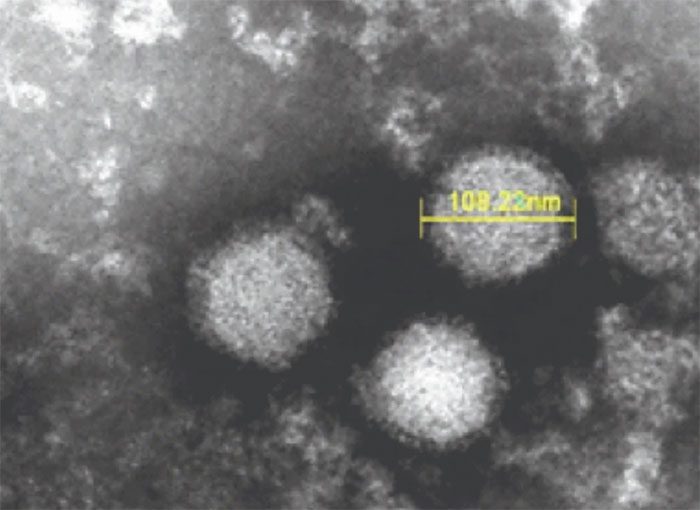After a patient died from Severe Fever with Thrombocytopenia Syndrome (SFTS), the attending physician exhibited similar symptoms and was diagnosed with SFTS.
The National Institute of Infectious Diseases (NIID) has confirmed the first case of human-to-human transmission of Severe Fever with Thrombocytopenia Syndrome (SFTS) in Japan.

SFTS is an infectious disease transmitted by ticks carrying the SFTS virus. (Source: LabMedica).
This SFTS case was transmitted from the patient to the treating physician.
According to NIID, the physician, a man in his 20s, was responsible for the care of a patient in her 90s who was diagnosed with SFTS after being admitted to the emergency room in April 2023 due to declining health.
After the patient passed away, the physician performed various procedures, including removing the catheter after the autopsy.
During the procedure, the physician wore a mask and gloves but did not wear protective eyewear.
About 9 days after the patient’s death, the physician developed symptoms of fever and headache and was diagnosed with SFTS.
Genetic analysis of the virus strains from both the physician and the patient showed identical sequences, confirming human-to-human transmission.
While human-to-human transmission of SFTS has been previously reported in China and South Korea, this is the first case in Japan.
Following the confirmation of the first human-to-human transmission case in Japan, NIID has recommended that healthcare workers adhere to strict infection control measures, including the use of face shields to protect against potential exposure to patient bodily fluids.
|
SFTS is an infectious disease caused by ticks carrying the SFTS virus. The risk of tick bites is high among individuals working in mountainous areas. 6 to 14 days after being bitten by an infected tick, patients may exhibit symptoms such as vomiting and high fever. In severe cases, the disease can be life-threatening. |


















































